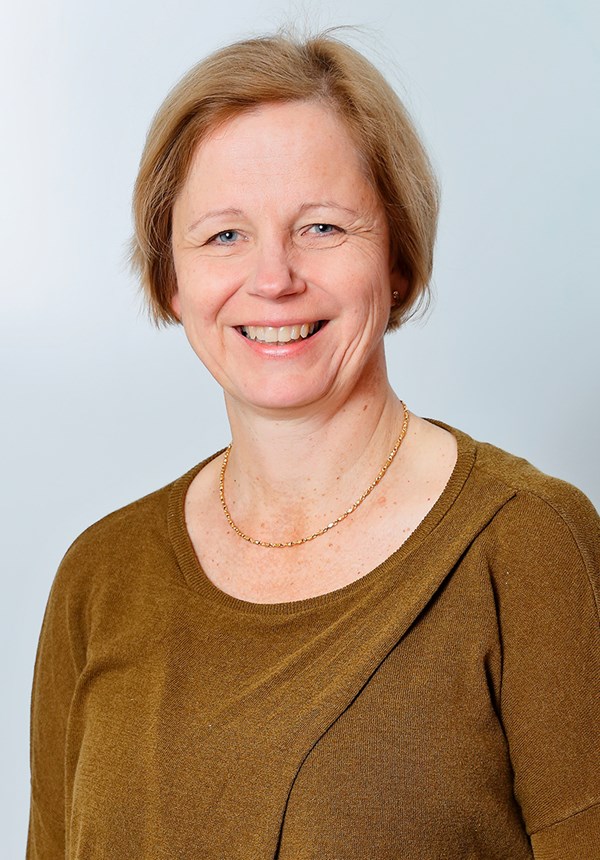The Botnia Study
The research of the Botnia Study Group aims at characterizing the genetic and environmental factors predisposing to diabetes and its complications. In addition to unravelling the complex interacting metabolic pathways, we hope to find tools for individualized prevention and treatment of diabetes.
The Botnia Study
The Botnia Study started in 1990 at three centers in Närpes, Korsholm and Malax-Korsnäs. Later, the study expanded to Jakobstad, Vasa, Helsinki and southern Sweden.
The Botnia Family Study and the population-based PPP-Botnia Study (Prevalence, Prediction and Prevention of Diabetes) include nearly 17,000 subjects of whom ~20% have diabetes.
To study the prognostic significance of the identified risk factors and genotypes at the population level, we completed a 6-year follow-up study of the PPP-Botnia 2011–2015 with great success (3,870 individuals, 77% participation rate). The second follow-up started in 2018 and all those alive who participated in the first examination are going to be invited.
Type 2 diabetes (T2D) is a complex disease caused by several interacting genes and environmental factors. To date, together with our collaborators, we have identified over 400 genes associated with T2D and its subphenotypes. Many of these genes have shed light on new pathways affecting insulin secretion; e.g. the sleep hormone melatonin seems to affect insulin secretion in beta cells, and melatonin treatment increases the diabetes risk in carriers of melatonin receptor risk genotype. Another project involves mechanistic studies in families with a rare loss-of-function mutation in SLC30A8 zinc transporter, which we have shown to protect against T2D.
Recruitment in the FinnMody Study on monogenic diabetes in Finland is ongoing and so far about 500 new participants have been accepted in the study. In addition, 250 old participants have been included from the Botnia-study. We recently showed that polygenic genetic susceptibility to type 2 diabetes affects the age at diagnosis of HNF1A-MODY, one of the monogenic forms of diabetes.
The diabetes register of the Vaasa hospital district DIREVA is carried out as collaboration with the Botnia-study, University of Helsinki and Lund University in Malmö since 2007. Currently, it includes over 7000 patients. We follow all patients with diabetes in the district to analyze factors affecting development of complications and treatment responses. The objective is better and individualized care of diabetes.
Read more
Senior Scientist
Liisa Hakaste, MD, PhD
Postdoctoral Scientist
Minna Harsunen, MD, PhD
Staff
Paula Kokko, Laboratory Manager (Helsinki)
Britt Stolpe, Research Nurse (Western Finland: Vaasa)
Matleena Lamminaho, Research Nurse (Vaasa)
Laura Impivaara, MSSc, Research Administration Coordinator (Helsinki)
Elias Mattila, Medical Student, Research Assistant (Helsinki)
Emmi Saksela, Medical Student, Research Assistant (Helsinki)
Anu Karhu, Research Nurse (Helsinki)
Sonja Paulaharju, Research Nurse (Vaasa)
Linda Sjölund, Research Nurse (Vaasa)
Harsunen M, Kettunen JLT, Härkönen T, Dwivedi O, Lehtovirta M, Vähäsalo P, Veijola R, Ilonen J, Miettinen PJ, Knip M, Tuomi T. Identification of monogenic variants in more than ten per cent of children without type 1 diabetes-related autoantibodies at diagnosis in the Finnish Pediatric Diabetes Register. Diabetologia. 2022 Nov 23. doi: 10.1007/s00125-022-05834-y. Online ahead of print.
Kettunen JLT, Rantala E, Dwivedi OP, Isomaa B, Sarelin L, Kokko P, Hakaste L, Miettinen PJ, Groop LC, Tuomi T. A multigenerational study on phenotypic consequences of the most common causal variant of HNF1A-MODY. Diabetologia. 2022 Apr;65(4):632-643.
Mansour-Aly D, Dwivedi Prakash O, Prasad RB, Käräjämäki A, Hjort R, Thangam M, Åkerlund M, Mahajan A, Udler MS, Florez JC, McCarthy MI, Regeneron Genetics Center, Brosnan J, Melander O1, Carlsson S, Hansson O, Tuomi T, Groop L, Ahlqvist E. Genome-wide association analyses highlight etiological differences underlying newly defined subtypes of diabetes. Nature Genetics, 2021 in press
Ahlqvist E, Storm P, Käräjämäki A, Martinell M, Dorkhan M, Carlsson A, Vikman P, Prasad RB, Aly DM, Almgren P, Wessman Y, Shaat N, Spégel P, Mulder H, Lindholm E, Melander O, Hansson O, Malmqvist U, Lernmark Å, Lahti K, Forsén T, Tuomi T, Rosengren AH, Groop L. Novel subgroups of adult-onset diabetes and their association with outcomes: a data-driven cluster analysis of six variables. The Lancet Diabetes & Endocrinology 2018 May;6(5):361-369.
Di Camillo B, Hakaste L, Sambo F, Gabriel R, Kravic J, Isomaa B, Tuomilehto B, Alonso M, Longato E, Facchinetti A, Groop L, Cobelli C, Tuomi T. HAPT2D: High accuracy of prediction of T2D with a model combining basic and advanced data depending on availability. Eur J Endocrinol, 2018 Apr;178(4):331-341.
Patel KA, Kettunen J, Laakso M, Stančáková A, Laver TW, Colclough K, Johnson MB, Abramowicz M, Groop L, Miettinen PJ, Shepherd MH, Flanagan SE, Ellard S, Inagaki N, Hattersley AT, Tuomi T, Cnop M, Weedon M. Heterozygous RFX6 protein truncating variants cause Maturity-Onset Diabetes of the Young (MODY) with reduced penetrance. Nature Communications 2017 Oct 12;8(1):888.
Kettunen J, Parviainen H, Miettinen PJ, Färkkilä M, Tamminen M, Salonen P, Lantto E, Tuomi T. Biliary Anomalies in Patients with HNF1B-Diabetes. J Clin Endocrinol Metab. 2017 Jun 1;102(6):2075-2082.
Tuomi T, Nagorny CLF, Singh P, Bennet H, Yu Q, Alenkvist I, Isomaa B, Östman B, Söderström J, Pesonen A-K, Martikainen S, Räikkönen K, Forsén T, Hakaste L, Almgren P, Storm P, Asplund O, Shcherbina L, Fex M, Fadista J, Tengholm A, Wierup N, Groop L, and Mulder H. Increased melatonin signaling is a risk factor for Type 2 Diabetes. Cell Metabolism 2016; Jun 14;23(6):1067-77.
Ottosson-Laakso E., Tuomi T., Forsen B., Gullström M., Groop P-H, Groop L., Vikman P. Influence of Familial Renal Glycosuria due to Mutations in the SLC5A2 Gene on Changes in Glucose Tolerance Over Time. Plos One, 2016 Jan 6;11(1):e0146114.
Andersen M, Sterner M, Forsén T, Käräjämäki A, Rolandsson O, Forsblom C, Groop PH, Lahti K, Nilsson PM, Groop L, Tuomi T. Type 2 diabetes susceptibility gene variants predispose to adult-onset autoimmune diabetes. Diabetologia, 2014: 57(9):1859-68.
Lundgren V, Isomaa B, Lyssenko V, Laurila E, Korhonen P, Groop L, Tuomi T for the Botnia Study Group. GADA antibody positivity predicts type 2 diabetes in adult population. Diabetes 2010; 59(2):416-22.
Andersen M, Lundgren V, Isomaa B, Turunen J, Forsblom C, Groop P-H, Groop L, Tuomi T. Latent Autoimmune Diabetes in Adults differs genetically from classical type 1 diabetes diagnosed after the age of 35 years. Diabetes Care 2010; 33(9):2062-4.
Cuesta-Muñoz AL, Tuomi T, Cobo-Vuilleumier N, Koskela H, Odili S, Stride A, Buettger C, Otonkoski T, Froguel P, Grimsby J, Garcia-Gimeno M, Matschinsky FR. Clinical Heterogeneity in Maturity Onset Diabetes of the Young type 2 (MODY2) caused by mutations in the glucokinase gene. Diabetes Care 2010 33:290-292.
Lyssenko V, Jonsson A, Almgren P, Pulizzi N, Isomaa B, Tuomi T, Berglund G, Altshuler D, Nilsson P, Groop L. Clinical risk factors, DNA variants and the development of type 2 diabetes. NEJM 2008; 359: 2220-32.
Lyssenko V, Orho-Melander M, Sjögren M, Ling C, Lupi R, Marchetti P, DelPrato S, Eriksson, K-F, Lethagen Å-L, Berglund G, Tuomi T, Nilsson P, Groop L. Mechanisms by which Common variants in the TCF7L2 gene increase risk of future type 2 diabetes by influencing pancreatic alpha and beta-cell function. J Clin Invest 2007; 117: 2155-63.
The Diabetes Genetics Initiative of Broad Institute of Harvard and MIT, Lund University and Novartis Institutes for Biomedical Researh. Broad Institute of Harvard and MIT: Altshuler D, Burtt NP, Daly M, de Bakker P, Florez JC, Gabriel S, Gianniny L, Guiducci C, Hackett R, Handsaker B, Hirschhorn J, Kathiresan S, Lettre G, Lyon H, Mootha V, Newton-Cheh C, Nizzari M, Saxena R, Speliotes E, Tewhey R, Voight B,; Lund University and Helsinki University: Almgren P, Berglund A, Groop L, Isomaa B, Laurila E, Lyssenko V, Melander O, Orho-Melander M, Nilsson P, Parikh H, Svensson M, Svensson M, Taskinen M-R, Tuomi T; Novartis Institutes for BioMedical Research: Chen H, Ma Q, Meyer J, Richardson D, Roix J, Ricke D, Hughes T. A Genome-Wide Association Study for Type 2 Diabetes and 18 Related Metabolic Traits. Science 2007; 316: 1331-1336.
Lyssenko V, Almgren P, Anevski D, Perfekt R, Lahti K, Isomaa B, Forsen B, Nissén M, Homström N, Saloranta C , Taskinen M-R, Groop L and Tuomi T. Predictors and longitudinal changes in insulin sensitivity and secretion preceding onset of type 2 diabetes. Diabetes 2005; 54:166-174.
Folkhälsan Research Foundation
University of Helsinki
Academy of Finland
Helsinki University Hospital (HUS) Research funding
Ollqvist foundation
Sigrid Juselius foundation
Medicinska Understödsföreningen Liv och Hälsa r.f.
The Diabetes Research Foundation in Finland
Novo Nordisk Fonden
Svenska Kulturfonden
Signe och Ane Gyllenberg foundation
Finska Läkaresällskapet
The hospital district of Vaasa
Vaasa municipal health center
Närpes healthcare foundation and municipal health center
Mustasaari municipal health center
Maalahti-Korsnäs municipal health center
Post Doctoral Scientists
Jarno Kettunen, MD
Mikko Lehtovirta, MD, PhD
Om Prakash, PhD
Vasudha Ahuja, MBBS, MPH, PhD
Samu Kurki, PhD
Katarina Johansson, MD, PhD
Graduate Students
Annemari Käräjämäki, MD (Vaasa)
Iiro Karhiaho, MD
Liisa Kullamaa, MD
Feiyi Wang, Msc
Aleksi Laitinen, MD (Vaasa)
Undergraduate Students
Peik Pietilä, Med. Stud.
Aino Hakkila, Med. Stud.
Elias Mattila, Med. Stud.
Emmi Saksela, Med. Stud.
Senior Doctors at the centers
Björn Forsén, MD (Närpiö)
Kaj Lahti, MD (Vaasa)
Johan Söderström, MD (Vaasa)
Bjarne Östman, MD (Pietarsaari)
Sofia Svartsjö, MD (Mustasaari)
Filip Koskinen, MD (Mustasaari)
Other
Susanna Saarinen, Medical Laboratory Technologist (Helsinki)
Susanna Söderback, Diabetes Nurse (Närpiö)
Gunilla Nyman-Klavus, Diabetes Nurse (Vaasa)
Lisa Sundman, Research Nurse (Vaasa, DIREVA)


